On education, the requirement of lifelong learning and solutions
The following article explains why we need to rethink education. It provides solutions for younger and experienced talents—especially in a world of volatility, uncertainty, complexity and ambiguity.
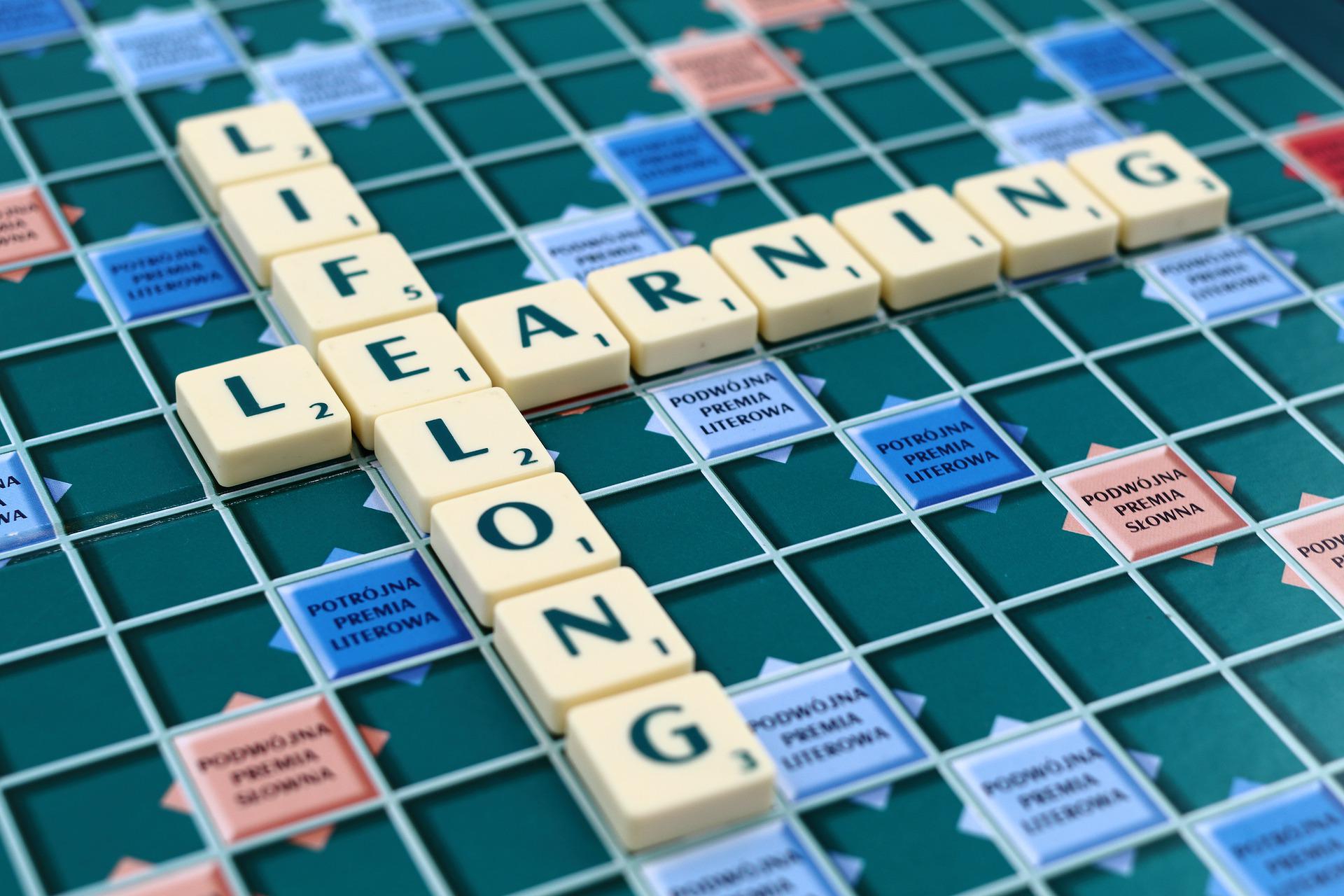
Insights and strategies to support your career
Please note that the article was synthesized from several sources—all listed in the reference section.
Background
(de Bosschere & Vardenega, 2021)
Our education systems were designed in the 19th century to prepare the workforce for the needs of the firth industrial revolution—the purpose was to serve the industry, society and people, trained at a young age, who had lifelong jobs.
Knowledge changed slowly—mostly shared via books and libraries.
The progressing fourth industrial revolution brings us advanced technologies and further progress. These developments transform the way we live and work. Some jobs will disappear, others will grow, and jobs that do not exist today will become commonplace. What is certain is that the future workforce will need to align its skillset to keep pace.
Excellent education is the key to solving the global challenges of the 21st century, but schools can no longer prepare students for lifelong careers. In addition, without a well-trained workforce, Europe will not be able to compete with the rest of the world—and more importantly, Human minds are one of the essential resources that Europe offers.
Compulsory schooling and education started early in Germany and have a long history. Martin Luther called for mandatory education to make sure that Protestants could read the German translation of the bible by themselves—so that people would be liberated from rigid church controls and were able to establish an individual relationship with God. Prussia invested strongly in creating modern universities that used German as the language of instruction—allowing more people to study.
During this time, Germany chose rationalism over religious orthodoxy and applied new modes of teaching. Professors and their academic staff received much freedom and could spend a significant part of their time on research. Germany's universities become the centre of the German enlightenment in the 17th and 18th centuries. This transformation unleashed the intellectual power of the country's most intelligent people. It led to an unprecedented series of leaders in all areas of human cognition (in alphabetical order): Bach, Boltzman, Bonhoefer, Clausius, Einstein, Engels, Euler, Freud, Gauss, Goedel, Hertz, Kant, Kekulé, Koch, Marz, Mendel, Mozart, Nietzsche, Planck, Roentgen, Schuber, von Helmholtz and von Liebig.
VUCA World
(de Bosschere & Vardenega, 2021), (Wikpedia, 2019), (World Economic Forum, 2016)
Today's globalised world is called VUCA: volatile, uncertain, complex and ambiguous—a multilateral world resulting from the end of the Cold War. Change is accelerating, and there are no longer lifelong guarantees for jobs.
- *Volatility* stands for the nature and dynamics of change, the nature and speed of change forces— all change catalysts.
- *Uncertainty* stands for the lack of predictability, the prospect of surprise, and the sense of awareness and understanding of issues and events.
- *Complexity* stands for the multiplex of forces, the confounding of issues, the no-cause-and-effect chain and the confusion surrounding organisations.
- *Ambiguity* stands for the haziness of reality, the potential for misreading, and the mixed meanings of conditions—cause-and-effect confusion.
The 4th industrial revolution, especially in a VUCA world, will bring disruptive change to business models, which will profoundly impact the employment landscape over the coming years.
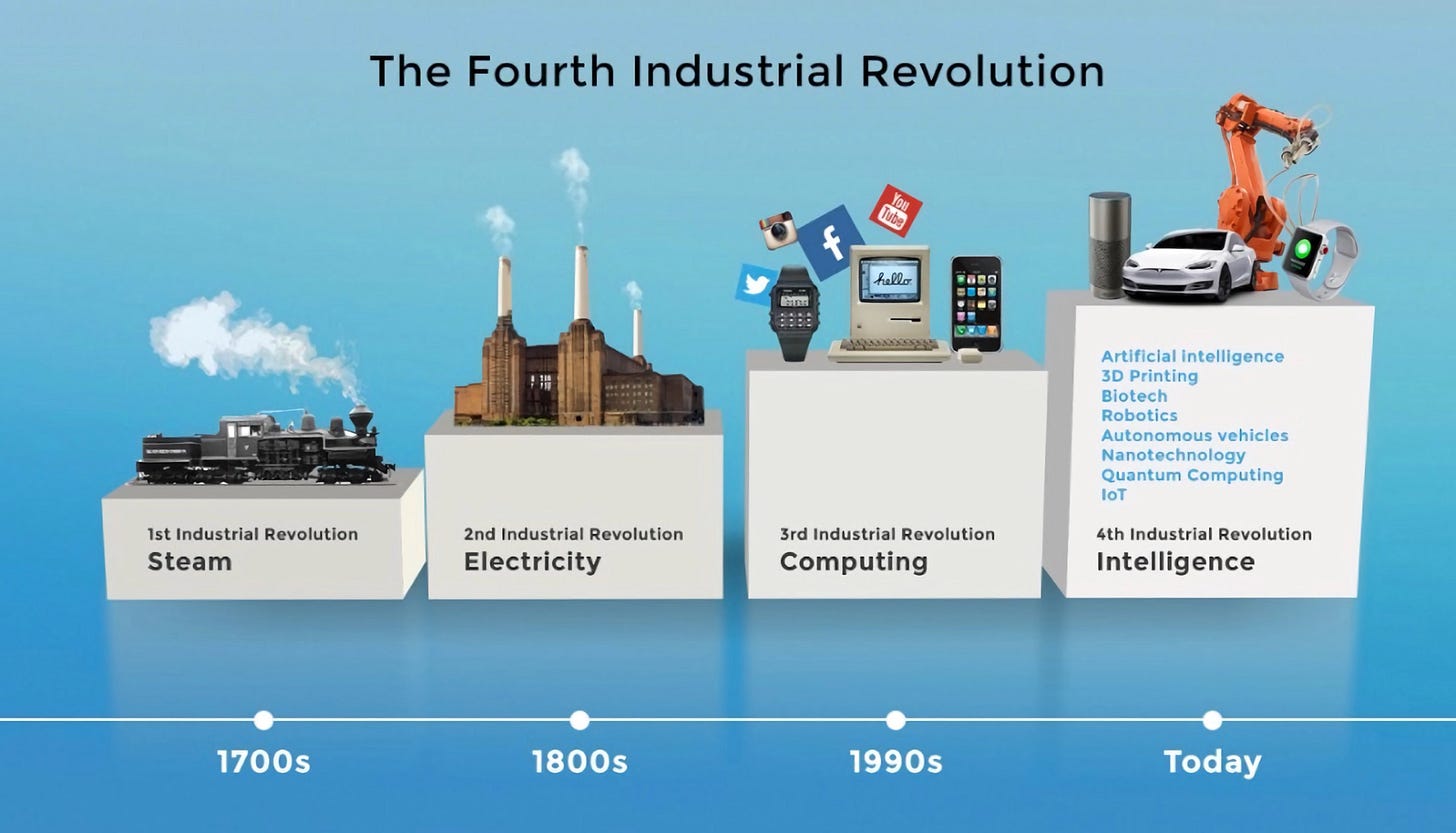
All new technologies and developments in genetics, artificial intelligence, advanced robotics and materials, nanotechnologies, neurotechnologies, 3d printing and biotechnology are building on and amplifying one another. This interaction will lay the foundation for a revolution more comprehensive and all-encompassing than anything we have ever seen. We will experience a labour market that is more automated, digital and dynamic.
Consequently, employees will be required to add value beyond what can be done by automated systems and intelligent machines—requiring the workforce to operate in a digital environment. They must continually adapt to new work methods, sometimes done in new occupations.
But will all citizens benefit from this? What set of foundational skills are required, and how to get them?
Solutions
(de Bosschere & Vardenega, 2021), (Boynton, 2011), (Dondi, et al., 2021), (Groll, 2017), (Publications Office of the EU, 2019), (Pueyo, 2021a), (Pueyo, 2021b), (Traveltoteacher, 2018)
The solution consists of several elements.
FIRST, future education requires a mix of formal, non-formal, informal and tacit learning! This mixture is necessary because adults cannot easily send back to school to update their knowledge.
In *formal learning*, the Ministry of Education or educational institutions define the curriculum, its goals and objectives. It occurs in organised environments—educators teach students.
*Non-formal learning* is also a planned and structured program but happens outside the formal educational curriculum, such as in youth organisations, sports clubs or community groups.
*Informal learning* takes place outside the curriculum of formal and non-formal education programs. It is self-directed and incidental learning.
Self-directed learning is a learning project that individuals undertake without an educator's assistance. It can include the presence of a resource person who helps if questions occur.
Incidental learning refers to a learning experience when the learner did not have any previous intention of learning something from that experience. Still, after the experience, the learner becomes aware that some learning has happened.
*Tacit learning* (also referred to as socialisation) refers to the internationalisation of values, attitudes, behaviours, and skills that occur during everyday life.
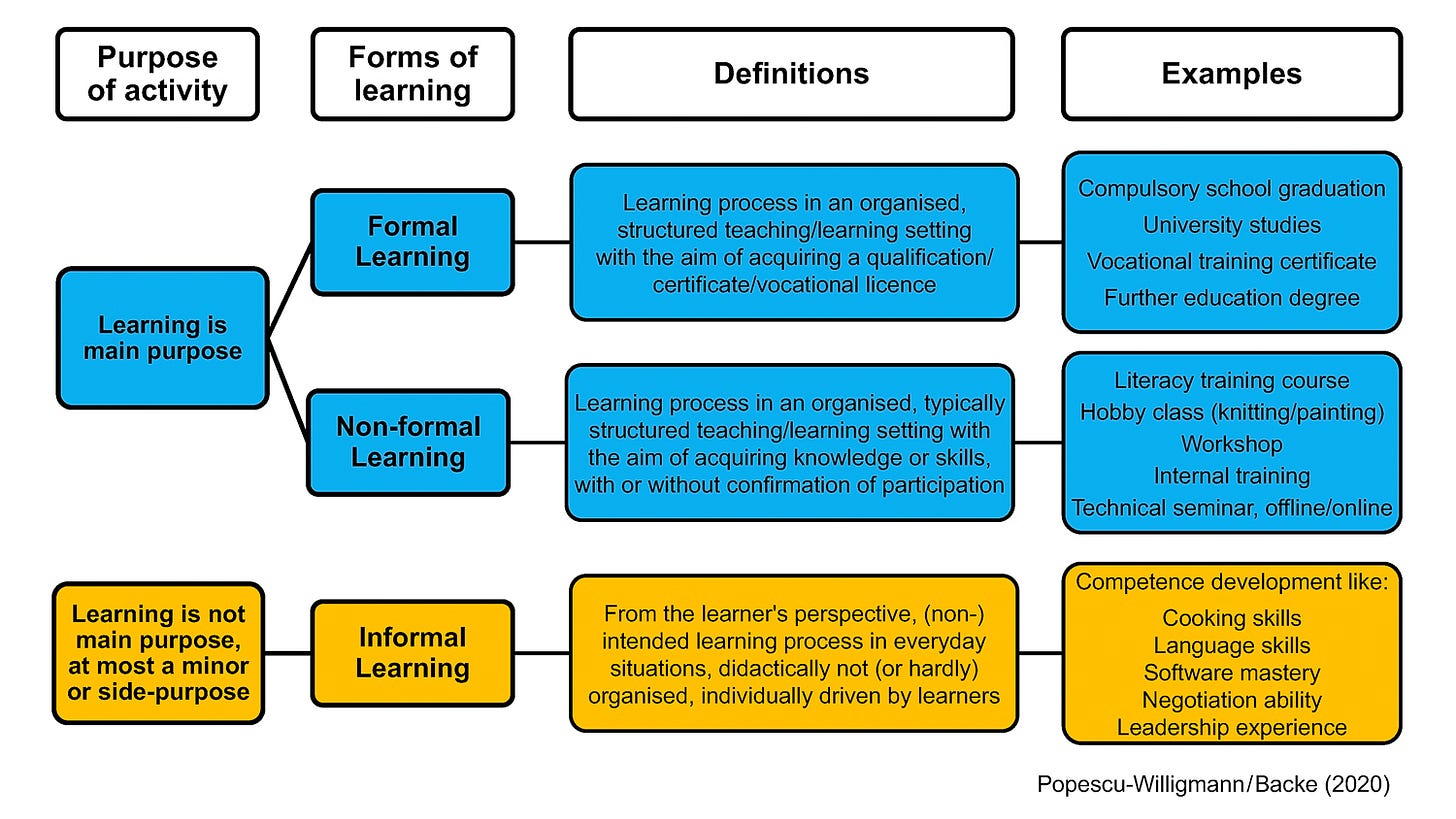
SECOND, we need more T-shaped people! The VUCA world requires organisations to engage in transformational activities to meet changing requirements, which helps organisations to increase the frequency and speed of delivering value. Because of this, most people would be well-advised to develop T-shaped characteristics.
Traditionally, organisations applied skills through a human chain of "I" shaped specialists with deep and specific areas of expertise.
I-shaped specialists think narrow and tight. They are highly versed in a specific area of expertise and learn by drilling more deeply into a particular field.
What is necessary today is broad and deep knowledge. People need to broaden their source of information and knowledge.
T-shaped people think extended. They have broader skills and knowledge and learn by linking different perspectives from different specialities—which requires that people start planning their career and transformation to become more multi-dimensional and muli-skilled.
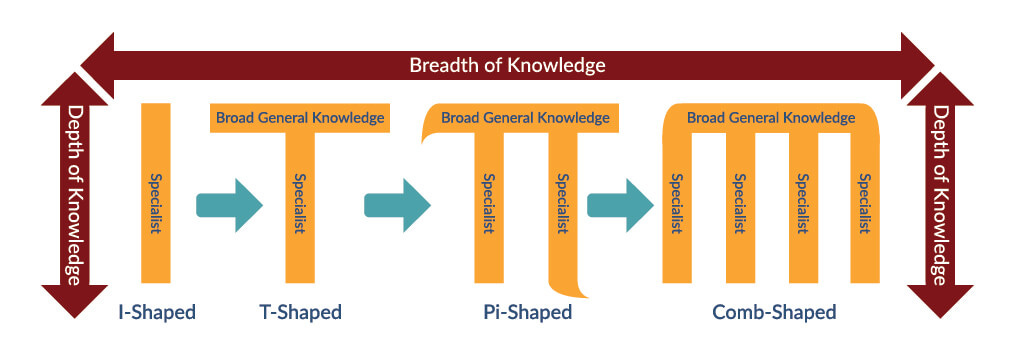
THIRD, do "skill stacking"—a concept which will make people more valuable by gaining a wide range of skills instead of pursuing one talent.
Most people will not become the next president of a country, master mathematics like Srinivasa Ramanujan, or be the best in the world at a given skill. There is always someone who works harder, has a more extraordinary genetic gift or just more luck.
Most people find it easier to develop a skill and be part of the top 10% instead of spending a significant additional effort to belong to the top 1%.
With skill stacking, people become world-class faster by having a unique combination of skills. People are more efficient in being in the top 10% in several different skills and combining them than it is to be in the top 1% in one skill.
A range of skills can help people succeed and compete in various industries. Doing so offers a more realistic path to success and may provide more professional opportunities in multiple fields.
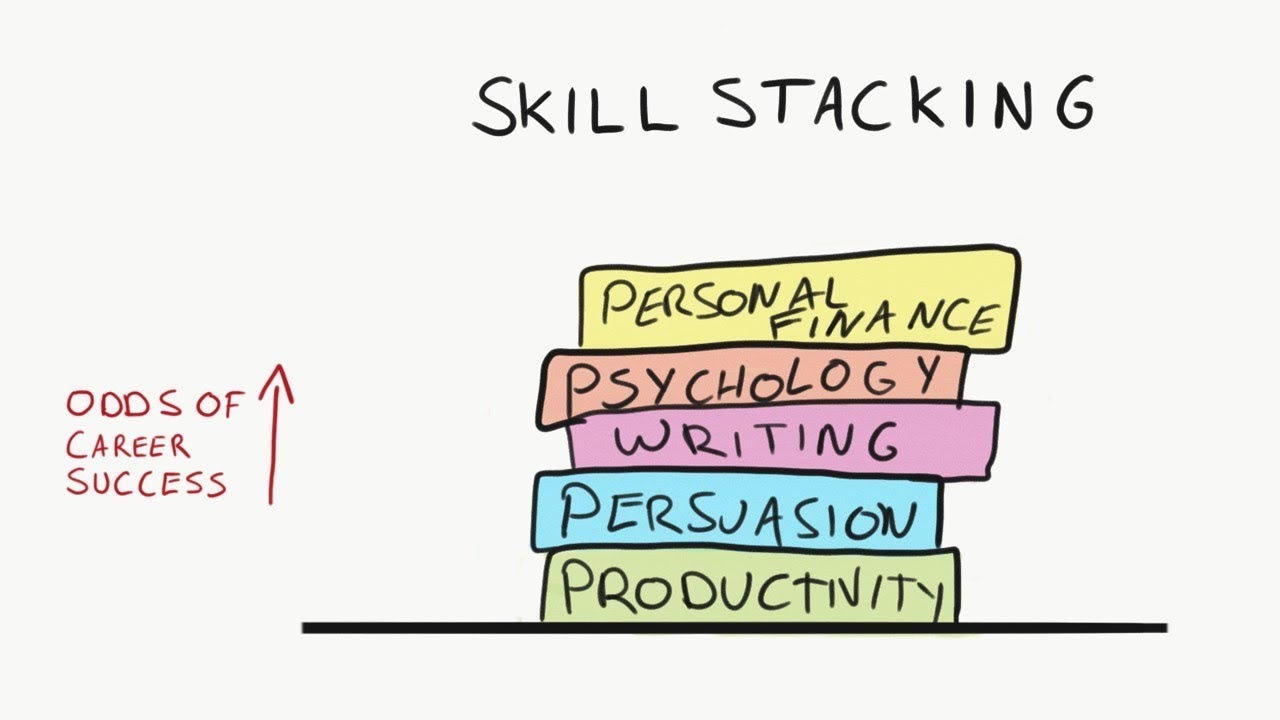
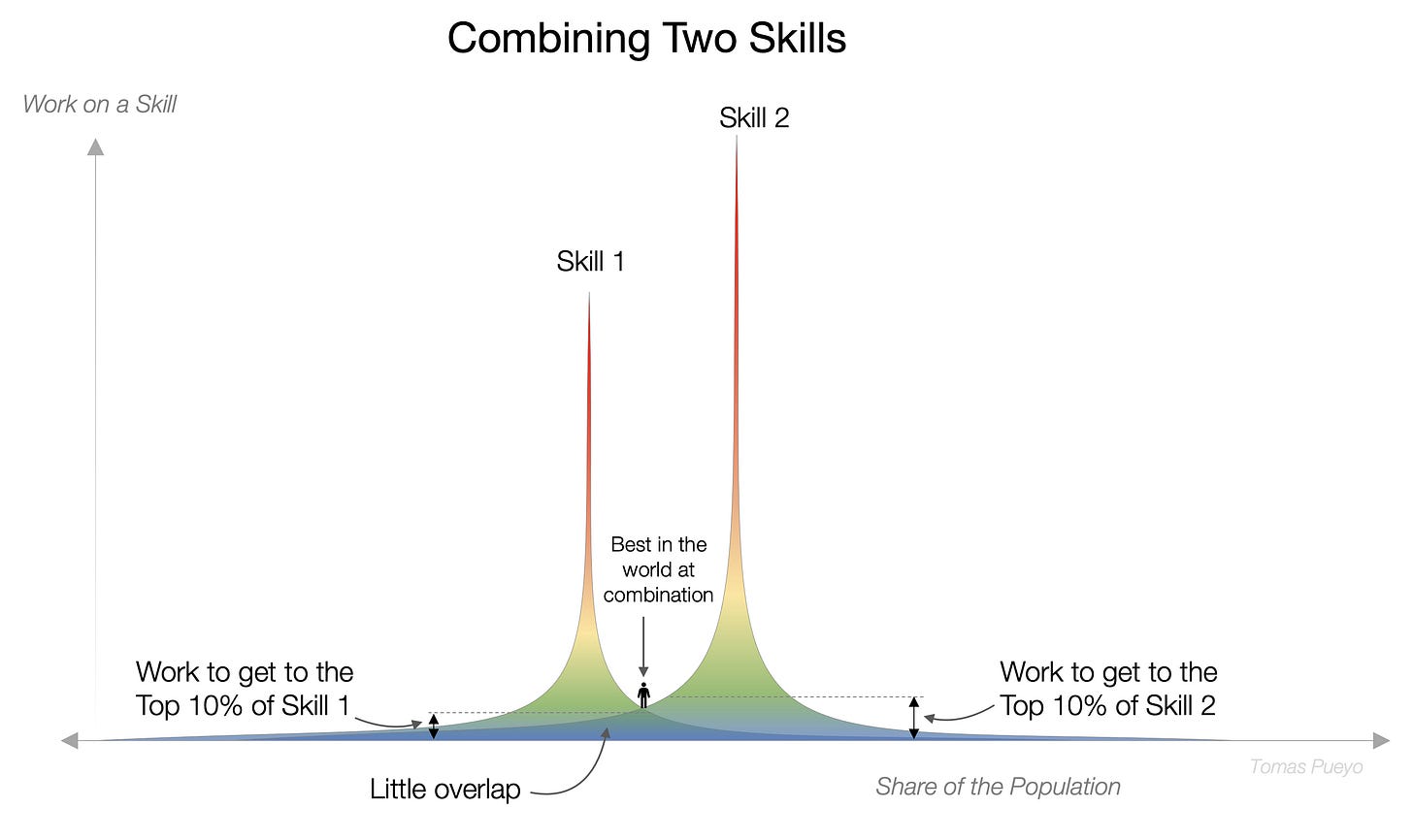
FORTH, adopt the right skills.
The European Parliament recommended crucial competencies for lifelong learning—competencies each European citizen needs for personal fulfilment and development.
McKinsey & Company defined the skills people will need in the future world of work. Their research identifies 56 foundational skills and attitudes that will help people thrive. The skills and attitudes are organised into the following four main groups: "cognitive", "interpersonal", "self-leadership, and "digital"—subdivided into 13 skill groups.
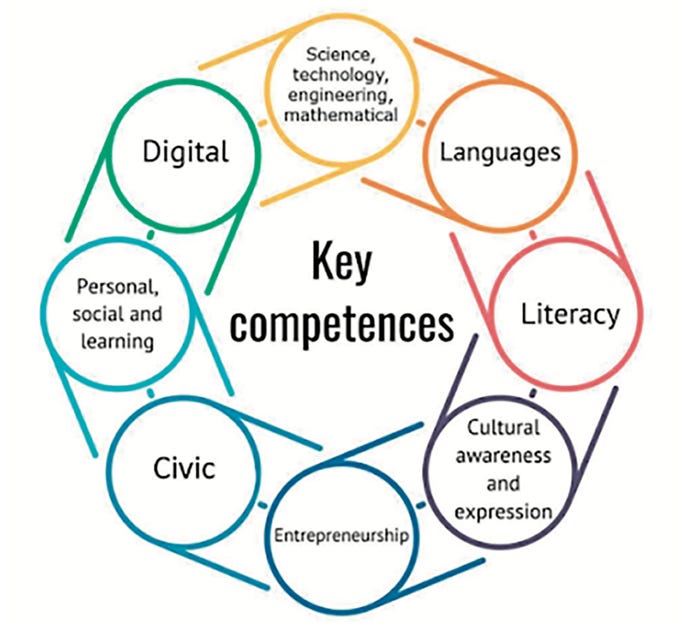
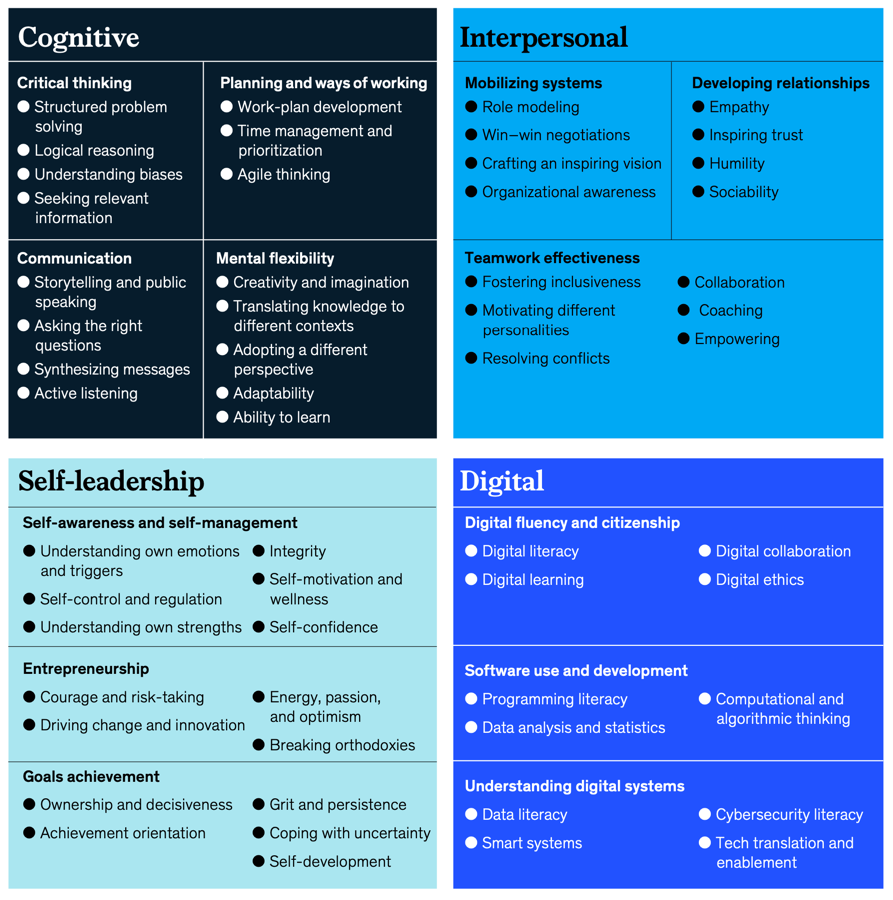
Summary
- Our current education system was designed in the 19th century.
- Schools can no longer prepare students for lifelong careers.
- The fourth industrial revolution brings us advanced technologies— it will transform how we live and work.
- Today's globalised world is called VUCA: volatile, uncertain, complex and ambiguous.
- Future education requires a mix of formal, non-formal, informal and tacit learning.
- More T-shaped people are required to master the current and upcoming challenges.
- Instead of pursuing one talent, do skill stacking and gain a wide range of skills.
- Adopt the right skills. The European Parliament's recommendation on crucial competencies or McKinsey & Company's foundational skills provides ideas.
References
- Andy Boynton. (2011). Are You an “I” or an “T.”
- Daniel Schugurensky. (2000). The Forms of Informal Learning: Towards a Conceptualization of the Field. WALL Working Paper No. 19.
- Dondi, M., Klier, J., Panier, F., & Schubert, J. (2021). Defining the skills citizens will need in the future world of work. McKinsey & Company, June, 19. https://mck.co/3b1wULK
- Groll, J. (2017). From I-Shaped to T-Shaped - Why DevOps Professionals Need to be Multi-Skilled. https://devopsinstitute.com/2017/11/15/from-i-shaped-to-t-shaped-why-devops-professionals-need-to-be-multi-skilled/
- Koen de Bosschere, & Tullio Vardenega. (2021). Rethinking education. HiPEAC Vision 2021, 150–155.
- Publications Office of the EU. (2019). Key competencies for lifelong learning. https://op.europa.eu/de/publication-detail/-/publication/297a33c8-a1f3-11e9-9d01-01aa75ed71a1
- Tomas Pueyo. (2021a). How to Become the Best in the World at Something. Uncharted Territories.
- Tomas Pueyo. (2021b). How to Pick Your Skill Stack. Uncharted Territories.
- Traveltoteacher. (2018). EU Key Competences 2018. Retrieved July 15, 2022, from http://traveloteacher.blogspot.com/2018/03/eu-key-competences-2018.html
- Wikipedia. (2019). Volatility, uncertainty, complexity and ambiguity.
- World Economic Forum. (2016). The Future of Jobs. Global Challenge Insight Report, January.
